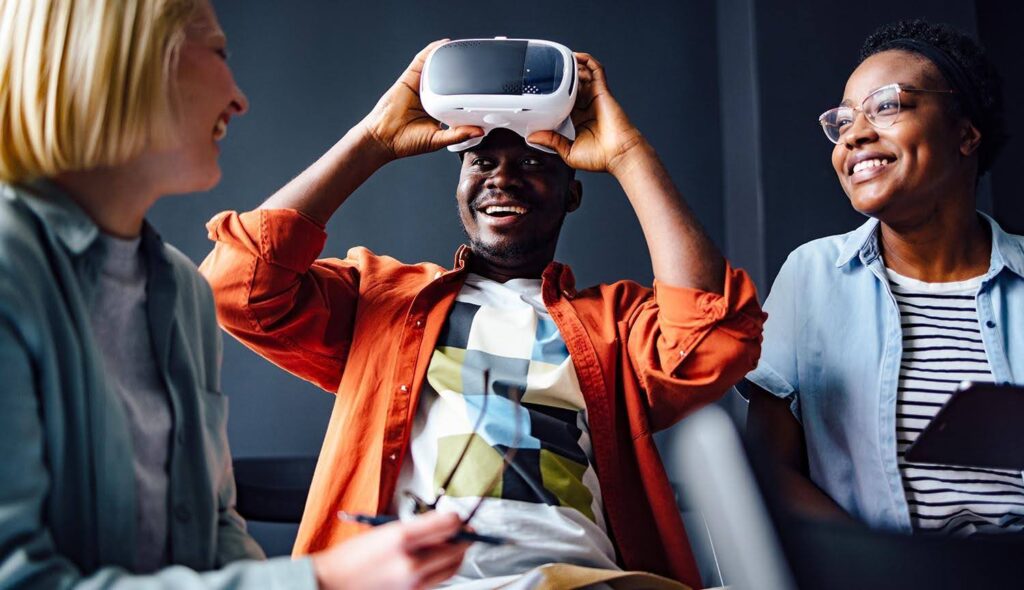Technological advancements are revolutionizing all aspects of education. Emerging technologies, particularly artificial intelligence (AI), have changed how educators teach and how students learn by streamlining education to make it more accessible, engaging, and personalized.
The articles below explore the trends and educational technology shaping classrooms in 2024 and offer insights into how educators can adapt and thrive in this evolving landscape.
Elevate Your Impact With a Master of Education from Tulane
Build Skills To Lead, Innovate, and Drive Inclusive Change
Classroom Trends To Watch in 2024 and Beyond
Explore the key technologies and innovations impacting modern classrooms, from virtual reality systems that help with engagement to AI-driven content creation tools. Learn how these tools enhance education by personalizing instruction, improving lesson planning, and providing feedback to create more effective and engaging learning experiences.
How New Educational Technology Shapes Classrooms
Discover how the latest technologies transform student learning by improving classroom management, personalizing learning experiences, fostering collaboration and communication, supporting accessibility, and providing access to mental health resources. Examine how educational technology creates more dynamic and impactful classrooms and how educators can use it strategically.
AI’s Impact on Instructional Designers
Learn how AI can transform course creation by streamlining development, creating personalized and adaptive learning, and enhancing classroom management. See how instructional designers use AI to create tailored content, develop lesson plans, identify students who need additional support, customize materials to meet individual student needs, and provide immediate and personalized assistance to students.
Preparing Educators for a Tech-Driven Future
Find out how educators adapt to the evolving technology landscape by embracing new tools and developing the skills needed to thrive in today’s environment. The online Master of Education (MEd) at Tulane University prepares educators for the future with a robust curriculum and hands-on experiential learning, helping them gain the knowledge and skills to lead and drive positive change in education.
The integration of technology in the classroom has already made a lasting impact on educators and students alike. Emerging technologies like AI and VR offer the potential for even greater advancements in the future.
The Tulane online MEd equips educators with the proficiency and tools to lead and innovate in the dynamic field of education. The program offers specialization options and cutting-edge coursework to prepare them for roles in education technology, learning design, and beyond.
After completing five core courses, students fulfill their remaining MEd credits by choosing electives aligned with their interests and career goals to advance their knowledge of technology integration, leadership, or inclusive teaching practices. Students who wish to develop an area of expertise take electives in one of four specialization areas — Education Leadership, Learning Experience Design, Teaching English Learners, and Special Education.
Elective courses include Emerging Technologies and Learning Perspectives, and Learning Technology Principles and Applications, where students explore tools like augmented reality (AR), AI, and VR and learn how to apply these tools to enhance learning. In the Fundamentals of Instructional Technology for Students with Disabilities, and Foundations of Instructional Design and Applications courses, students explore technology and design principles to create more inclusive and effective learning environments. Additional electives like Game-Based Learning Technology and Design, and Mobile Learning Design and Studio allow students to enhance their ability to innovate in the classroom by designing interactive, engaging, and personalized learning experiences.
The online MEd at Tulane helps educators thrive in an evolving educational technology landscape by blending emerging technologies with applied learning opportunities, preparing them to address the challenges and opportunities of tomorrow’s classrooms while promoting inclusion.




